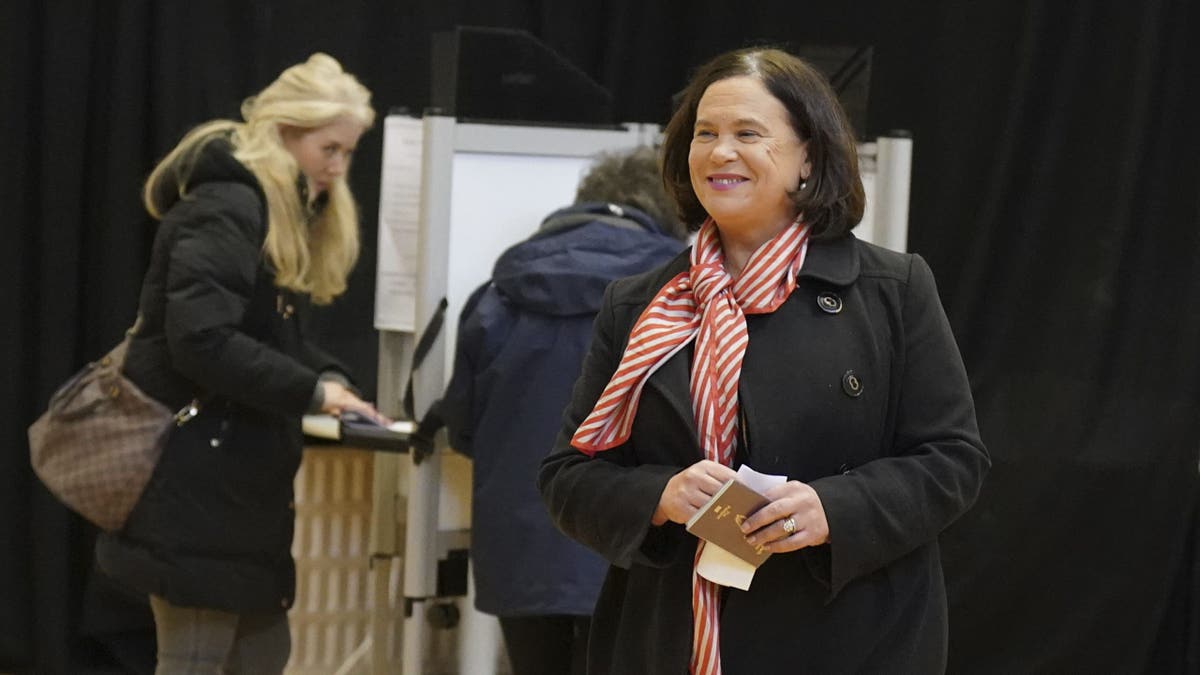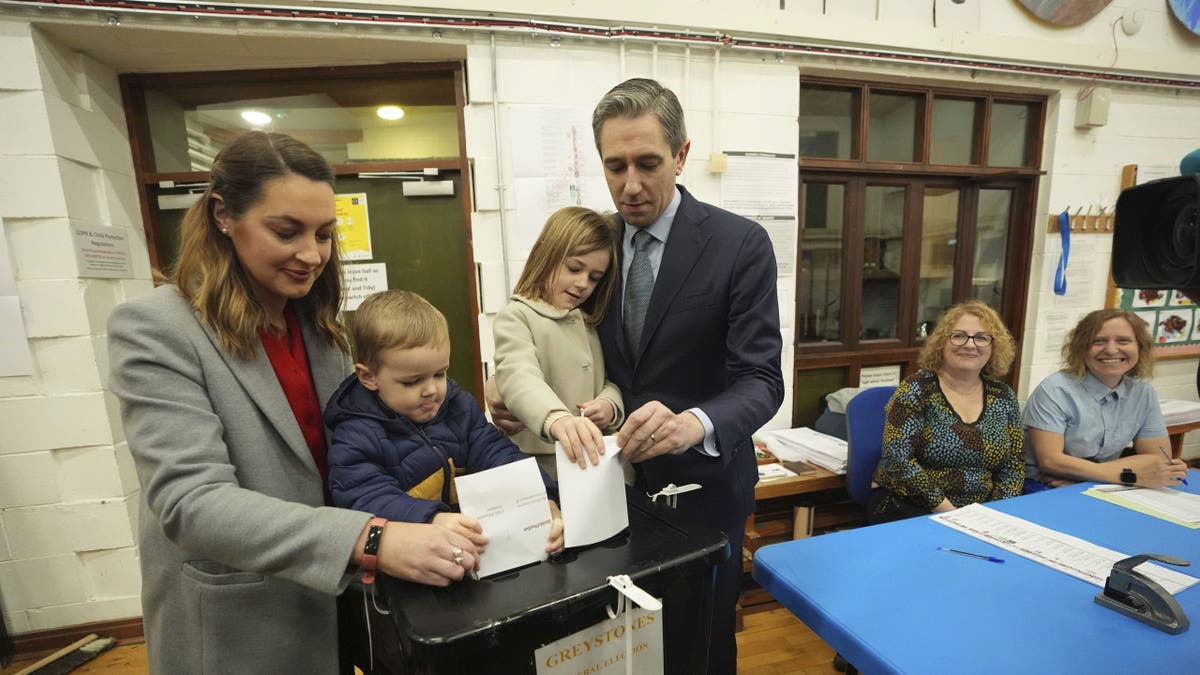Ireland election: Incumbent center-right parties likely to retain power, but left-wing Sinn Fein holds water

Irish exit polling suggests that the incumbent center-right parties could likely form a coalition government, though vote counting continues on Sunday and the left-wing Sinn Féin remains in the running.
Center-right party Fine Gael was the first choice of 21% of voters, and another center-right party, Fianna Fáil, had 19.5%, according to an Ipsos B&A poll, which asked 5,018 voters across the country how they had cast their ballots.
The two parties, which governed in coalition before the election, would need the support of smaller groups or independents to achieve a majority in the 174-seat Dail, the lower house of Parliament.
Left of center opposition party Sinn Féin was at 21.1% support, according to the poll, which has a margin of error of plus or minus 1.4 percentage points.
IRELAND VOTES IN A CLOSE-RUN ELECTION WHERE INCUMBENTS HOPE TO CLING ON TO POWER
The two center-right parties have yet to see the 88 seats needed to secure majority rule, and negotiations to form a coalition could extend for weeks as Europe awaits a potential shake-up brought by the return of President-elect Trump.
Sinn Féin achieved a stunning breakthrough in the 2020 election, topping the popular vote, but was shut out of government because Fianna Fáil and Fine Gael refused to work with it, citing its leftist policies and historic ties with the Irish Republican Army during three decades of violence in Northern Ireland.
Though Sinn Féin, which aims to reunite Ireland with the independent Republic of Ireland, could become the largest party in the Dail, it may struggle to get enough coalition partners to form a government. During the election campaign, both Fine Gael and Fianna Fáil maintained they would not go into government with it.
Fianna Fáil could get as many as 48 seats and Fine Gael 39, leaving them on the cusp of 88 seats, former Trinity College Dublin political science professor Michael Gallagher told RTE, citing vote tallies.
The most obvious candidates as coalition partners would be center-left parties Labour and the Social Democrats, who Gallagher said could take eight seats each, according to Reuters.
A Sinn Fein-led government would shake up Irish politics — and the future of the United Kingdom. The party is already the largest in Northern Ireland, and a Sinn Féin government in the republic would push for a referendum on Irish reunification in the next few years. Party leader Mary Lou McDonald said that Sinn Féin had “broken the political mold” in Ireland.
“Two-party politics is now gone. It’s consigned to the dustbin of history, and that in itself is very significant,” she told the Associated Press, as she awaited results at a count center in Dublin. “The question now arises for us, what do we do with that?”

The poll only gives an indication and does not reveal which parties will form the next government. Ireland uses a complex system of proportional representation in which each of the country’s 43 constituencies elects several lawmakers and voters rank candidates in order of preference. As a result, it can take some time for full results to be known.
IRELAND SCRAPS CONTROVERSIAL HATE SPEECH MEASURES FOLLOWING CRITICISM BY ELON MUSK, CONOR MCGREGOR
The cost of living — especially Ireland’s acute housing crisis — was a dominant topic in the three-week campaign, alongside mass migration, which has become a flash-point issue in a country of 5.4 million people long defined by emigration.
The election results will show whether Ireland bucks the global trend of incumbents being ousted after years of pandemic, international instability and cost-of-living pressures.
Before polling day, analysts said the most likely outcome was another Fine Gael-Fianna Fáil coalition. That remains a likely option. The front-runners to be the next Taoiseach, or prime minister, are current Taoiseach Simon Harris of Fine Gael and Fianna Fáil leader Micheál Martin — despite their parties’ relatively lackluster showing. Harris, Martin and McDonald all won-re-election to their parliamentary seats in results announced Saturday.

Fine Gael candidate Paschal Donohoe, a minister in the outgoing government, said the main theme of the election was “one of the center holding.”
“The big picture is, at a time in which incumbent governments all over Europe are struggling to get re-elected, the two larger parties within this government, in particular Fine Gael, are going to deliver a very strong performance,” he told the AP.
The Green Party, which held 12 seats in the last parliament and propped up the governing coalition, acknowledged that it was headed for a disappointing result.
Among a large crop of independent candidates was reputed organized crime boss Gerry “the Monk” Hutch, who has seen a groundswell of support since he was bailed on money-laundering charges in Spain this month in order to run for election.
Early results suggested he stood a good chance of winning a seat in Dublin.
Reuters and the Associated Press contributed to this report.
Read the full article here







